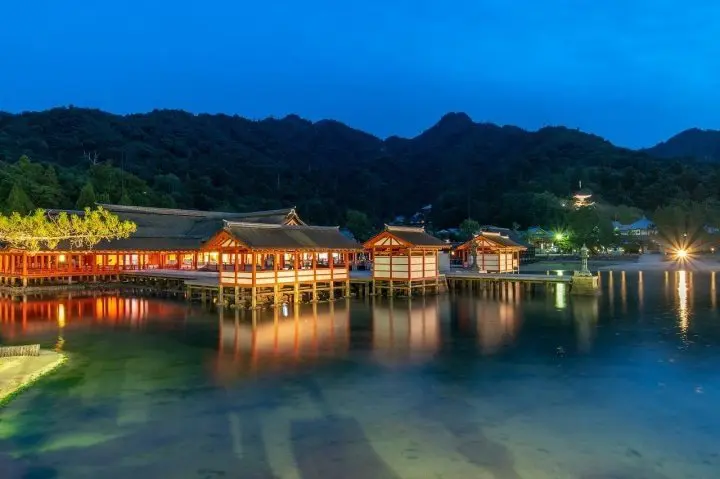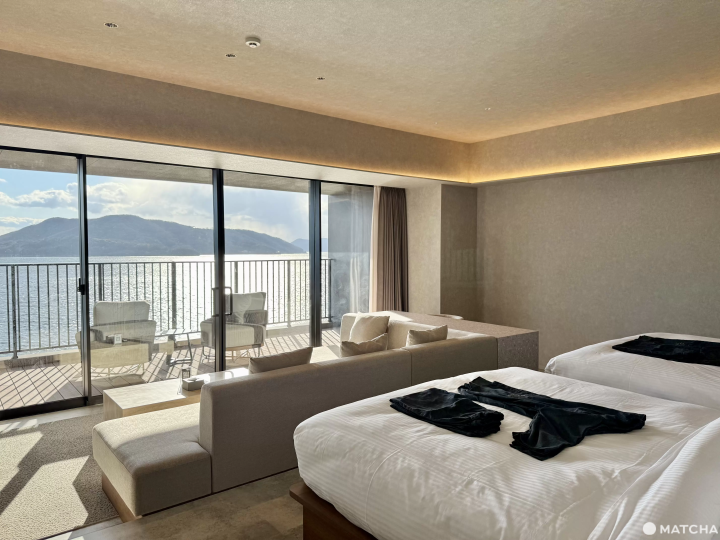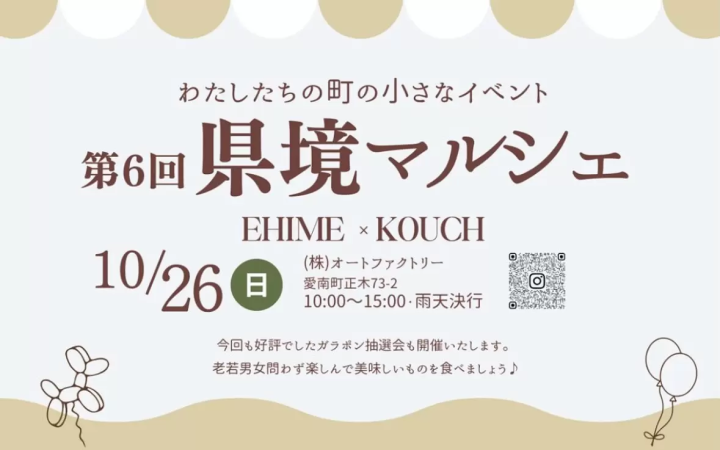Tokyo to Fukuoka: Find the Cheapest and Fastest Ways to Travel

Fukuoka, Kyushu's largest city, has many shopping and sightseeing spots. But which mode of transportation is best when traveling from Tokyo? We compare travel by airplane, shinkansen, highway bus, and rental car in terms of cost and convenience.
The Best Ways to Get to Fukuoka: A Comparison
Fukuoka―the largest city in Kyushu―is one of Japan's most popular destinations.
Fukuoka City is home to several large-scale shopping spots starting with the Tenjin area. Also, in recent years, the city has seen its entertainment scene continue to grow with the renewal of Marine World Uminonakamichi and the opening of Gundam Park Fukuoka.
Also, be sure to not miss out on Fukuoka's unique cuisine including Hakata ramen.
This article takes a look at the best modes of transportation when traveling from Tokyo to Fukuoka, using available information as of December 2022. We'll do a thorough comparison of prices, required travel time, and level of convenience.
How to Travel to Fukuoka from Tokyo
1. Traveling by Airplane to Fukuoka
2. Shinkansen: Perfect for Train Enthusiasts!
3. Highway Bus: Ideal for Those Wanting To Travel at Night
4. Renting a Car Is Best for Those Who Enjoy Driving
5. Complete Your Travel Plans with Hotel and Wi-Fi!
1. We Recommend Traveling by Airplane to Fukuoka

Each day, from 06:00 in the morning to 20:00 at night, more than 50 flights go from Tokyo's Haneda Airport to Fukuoka Airport. This route is served by several airlines including Star Flyer Airlines and Skymark Airlines, not to mention ANA and JAL.
Boarding time is roughly two hours. The large number of flights makes it convenient and so easy to make your travel plans.
One-way fare ranges from 11,047 yen to 48,430 yen for ANA and JAL. For Skymark and Star Flyer, the fare can sometimes be even less than 10,000 yen with their special package deals.
Also, low-cost carrier (LCC) Jetstar Airways flies to Fukuoka from Narita Airport. The one-way fare is 6,080 yen―the cheapest of all the carriers. However, please keep in mind that getting to Narita from central Tokyo takes anywhere from one hour to 90 minutes by limousine bus or train, and the fare is 1,000 yen to 1,500 yen.
Fukuoka Airport is close to the heart of Fukuoka and is also serviced by the subway, making access highly convenient. It also has many shops and restaurants, so right after landing you can have an enjoyable time right inside the airport!
2. Shinkansen: Perfect for Train Enthusiasts!

The shinkansen (bullet train) is a reliable form of transportation that's rarely disrupted by typhoons and other bad weather conditions.
It leaves for Hakata Station once every 30 minutes from Tokyo Station. It takes five hours and the one-way fare is 22,220 yen.
The EX Hayatoku―a discount for making an early reservation―and the Hayawari Ofuku Kippu ticket are also good options. A return ticket to Hakata costs a reasonable 34,970 yen.
Compared with air travel, the shinkansen takes more time and is more expensive. However, for travelers who want to take in Japan's breathtaking beauty, the shinkansen is the better choice.
International visitors can also purchase a JR PASS, which offers unlimited travel on the shinkansen for a flat fee, and the JR KYUSHU RAIL PASS, which offers unlimited travel within the Kyushu region on both JR limited express trains in addition to the shinkansen.
This is a great bargain for visitors planning a tour of Japan, so please check this out!
Check here for details on the JR PASS.
Check here for the JR KYUSHU RAIL PASS: A cost-efficient way to explore Kyushu!
3. Highway Bus: Ideal for Those Wanting To Travel at Night

It's been said that overnight buses going from Tokyo to Fukuoka travel the greatest distance among night buses. The fare for these highway buses starts at 8,500 yen and the required travel time is about 14 hours. This bus is a great option when you're unable to make a plane or Shinkansen reservation.
Premium Class on the Highway Bus Hakata Go, is expensive at over 18,000 yen but very famous for its supreme comfort. It's characterized by spacious semi-enclosed seating that offers iPad access and massage functions. The seats also come with tables, so it's possible to get caught up on a little work as well.
Upon arrival in Fukuoka, another attractive feature is the Central Wellness Club's shower-sauna-pool-gym facility at Solaria Plaza, which bus passengers can use at a discounted price.
While it's perfectly fine to quickly head to your hotel and retire for the night, we also recommend these extra features for people who want to relax and enjoy a luxurious trip together with their accommodation.
4. Renting a Car Is Best for Those Who Enjoy Driving

When traveling from Tokyo to Fukuoka via expressway and even making use of an ETC discount, expressway tolls will cost about 15,620 yen. It's a distance of about 1,100 kilometers so you'll also need to calculate your gas expenses.
Looking at the total cost it's obviously not cheaper than other modes of transportation, and it also requires quite a bit of traveling time. However, we do recommend renting a car for people who have lots of time and a flexible schedule, or for those who'd like to take a detour with a friend in a camping car on the way to Fukuoka.
MATCHA is currently offering international visitors a 10% discount coupon for use with NIPPON Rent-A-Car, one of Japan's leading car rental agencies.
NIPPON Rent-A-Car has several sales offices at the Fukuoka Airport and also in Fukuoka City. If you'd like to rent a car after arriving in Fukuoka by plane or shinkansen, please drop in at one of their offices and check out their services.
Many people choose to travel by airplane when going from Tokyo to Fukuoka. But travelers have other options as well. For those times when you're unable to book a plane ticket or you'd just simply like to give another mode of transportation a try, please use today's article as a handy reference.
5. Complete Your Travel Plans with Hotel and Wi-Fi!
Once we've finalized our Fukuoka travel schedule and decided on our method of transportation, next up is accommodation, right?
When looking for reasonably priced accommodation in Fukuoka it's best to enlist the help of Agoda and Booking.com
Also, the MATCHA article directly below introduces some recommended fashionable hotels within Fukuoka City. For those who'd like to plan a trip with someone special, please refer to this article.
On a different note, the number of places in Japan that offer free Wi-Fi is somewhat limited. So international visitors will find it convenient to rent pocket Wi-Fi.
MATCHA is currently offering a 20% off discount coupon (English) for use on Ninja Wi-Fi. So please be sure to take advantage of this great deal.
In closing, we hope that everyone has an enjoyable Fukuoka excursion that's filled with some unforgettable memories!
FAQ
How much is the bullet train from Tokyo to Fukuoka?
The cost of traveling on the Shinkansen from Tokyo to Fukuoka can vary depending on factors such as the train type, seating class, and reservation type. For the Nozomi or Mizuho Shinkansen, one-way fares for standard class reserved seats typically range from around 22,000 to 24,000 yen, with green car (first-class) seats costing approximately 29,000 to 31,000 yen. Traveling on the Hikari or Sakura Shinkansen, which may involve a transfer, could cost around 20,000 to 22,000 yen for standard class reserved seats and 26,000 to 28,000 yen for green car seats. These prices are approximate and subject to seasonal variations, availability, and any applicable discounts. For accurate and current information on Shinkansen ticket fares between Tokyo and Fukuoka, it is advisable to check directly with the railway operators or use online booking platforms prior to travel.
Can I use Suica in Fukuoka?
In Fukuoka, the main IC card used for public transportation is the ICOCA card, which is interchangeable with other major IC cards in Japan, such as Suica and PASMO. While Suica cards are primarily associated with the JR East network in the Tokyo metropolitan area, they can be used in Fukuoka and throughout most of Japan through the "ICOCA & Suica Card Through Service."
With this service, you can transfer the balance from your Suica card to an ICOCA card, which is widely accepted on public transportation in Fukuoka, including buses and trains operated by Nishitetsu and JR Kyushu. By utilizing the ICOCA & Suica Card Through Service, you can enjoy the convenience of using your Suica card for transportation in Fukuoka with seamless interoperability.
Is Fukuoka cheaper than Tokyo?
Generally, Fukuoka is perceived as more affordable than Tokyo in terms of living costs, dining expenditures, accommodations, and overall expenses. The city offers lower housing costs compared to Tokyo, making it more budget-friendly for residents and visitors. Dining out in Fukuoka tends to be cheaper, featuring a variety of affordable options such as street food, local specialties like tonkotsu ramen, and dining experiences in Yatai stalls and local eateries. Public transportation costs and taxi fares in Fukuoka are also relatively lower, contributing to the city's cost-effective transport options. Entertainment, shopping, and attractions in Fukuoka typically offer competitive prices, allowing residents and tourists to enjoy a range of activities without significant expenses. Fukuoka's overall cost of living is generally more reasonable compared to Tokyo, providing a more economical yet vibrant urban experience for those looking to explore Japan on a budget.
What is the best time to visit Fukuoka?
The best time to visit Fukuoka depends on individual preferences and the type of experience desired. Spring (March to May) brings the beauty of cherry blossoms and pleasant weather for exploring parks during hanami season. Autumn (September to November) showcases colorful foliage and mild temperatures, ideal for outdoor activities and enjoying scenic views. Summers (June to August) are vibrant with festivals like Hakata Gion Yamakasa, offering lively cultural experiences despite the hot and humid weather. Winter (December to February) features mild temperatures, seasonal illuminations, and winter festivals, providing a comfortable environment for exploration and relaxation. By considering factors like weather, activities, and local events, visitors can select the best time to visit Fukuoka based on their preferences for a fulfilling and enjoyable travel experience in the city.
How do I go from Tokyo to Fukuoka?
Traveling from Tokyo to Fukuoka, two major cities in Japan, presents various transportation options for a seamless journey between the regions. Flying from Tokyo's Haneda or Narita airports to Fukuoka Airport is the fastest method, with flights taking approximately 1.5 to 2 hours. Alternatively, taking the Shinkansen (bullet train) from Tokyo Station to Hakata Station in Fukuoka offers a scenic route, though the journey spans around 5 to 6 hours. For budget-conscious travelers, overnight highway buses provide a cost-effective choice, with travel times averaging 12 to 14 hours. Each mode of transportation offers unique advantages in terms of speed, cost, and comfort, catering to diverse travel preferences and facilitating convenient transit from Tokyo to Fukuoka.
Is it worth it to go to Fukuoka?
Fukuoka, a dynamic city in Kyushu, Japan, presents a compelling array of experiences that make it a rewarding destination for visitors. Renowned for its culinary scene featuring tonkotsu ramen, fresh seafood, and yatai food stalls, Fukuoka offers a gastronomic adventure. Historical landmarks like Fukuoka Castle Ruins and Dazaifu Tenmangu Shrine provide insights into the city's cultural heritage, while modern districts like Tenjin showcase contemporary shopping and entertainment options. The natural beauty of Nokonoshima Island and Uminonakamichi Seaside Park offers tranquility amid scenic landscapes. Fukuoka's vibrant festival scene and events like Hakata Gion Yamakasa and Dontaku Matsuri provide opportunities to immerse in the local culture. Additionally, easy access to nearby onsen towns like Beppu and Yufuin ensures a relaxing retreat in rejuvenating hot spring baths. With its diverse offerings encompassing culinary delights, historical landmarks, modern amenities, natural beauty, cultural events, and proximity to tranquil hot springs, Fukuoka emerges as a well-rounded destination that caters to a wide range of interests for travelers exploring Japan.
How far is Tokyo from Fukuoka by plane?
The distance between Tokyo and Fukuoka, two major cities in Japan, is approximately 875 kilometers (about 544 miles) when traveling by air. The flight duration between Tokyo (usually departing from Haneda Airport or Narita International Airport) and Fukuoka (arriving at Fukuoka Airport) typically ranges from 1.5 to 2 hours, depending on the flight route, airline, and specific departure and arrival locations within each city. Multiple daily flights are available between Tokyo and Fukuoka, making air travel a convenient and efficient mode of transportation for traversing the distance between these two cities in Japan.
This is the official account of MATCHA's editorial department. Our articles feature useful travel information for visitors to Japan, from how-to guides to recommended places to visit.















































